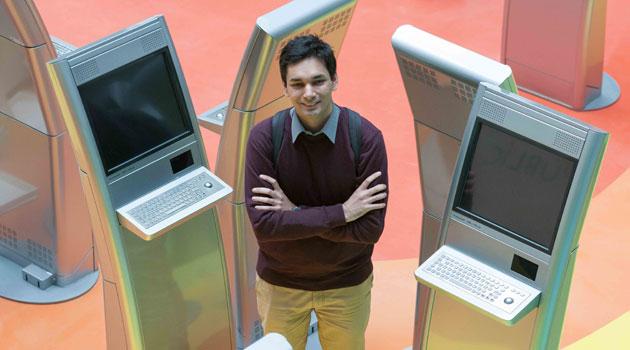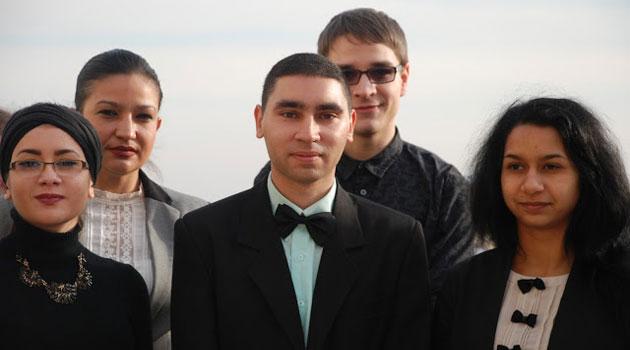On 22 January the Czech Television program “168 Hours” (168 hodin) broadcast a reportage about Romani college students. Prior to 1989 only about 20 Romani people had ever made it to study in institutions of higher learning in the Czech Republic, but today, according to reporter Martin Mikule, there are a few hundreds.
The reportage featured interviews asking the Romani students to describe how they made it to their studies. Family support was shown to be essential.
Marie Brendzová, a student at Anglo-American University in Prague in the Department of International Relations and Diplomacy, told Czech Television: “For me it was not at all difficult to acquire an education. Mom and Dad led me to becoming educated. In our family, education was just the most important thing. I graduated from gymnazium. In primary school I had straight A’s, so I made it to gymnazium.”
The story of Melinda Surmajová also demonstrates the need for Romani parents to resist the system, in place for years, that disproportionately recommended Romani children in particular enroll outside of mainstream education. “The first problem, basically, was when I was supposed to enroll into primary school, because the principal immediately recommended me for transfer into a special school, which today are called practical schools. To this day, I basically don’t know the reason for that decision. However, fortunately I did not transfer, because my parents wouldn’t allow it. They protested that if special school was my only option they would prefer to keep me out of school entirely,” recalls the student, who is now majoring in Law and Criminology at the College of Finance and Administration in Prague.
Setting the example
Yveta Kenety, a local coordinator of the international Roma Education Fund who also works for the ROMEA organization, confirmed what Surmajová had to say. While Kenety welcomes the fact that the situation is gradually changing and more Romani children are being educated according to the mainstream curriculum, she warned that of all the children being educated in the Czech Republic according to the special needs curriculum (i.e., one that has been somehow reduced), 30 % are Romani.
Reporter Martin Mikule also drew attention to the social barriers that prevent Romani people from studying. Martin Dudi, a student of Philosophy and Religion at the South Bohemian University in České Budějovice, comes from Písek, where he grew up in an impoverished family and told Czech Television “When I would come home and see how my parents both suffered, how they were just constantly solving the problem of whether they could send us to school the next day because they might not be able to afford to send us there with our own snacks, I told myself from a very young age that I do not want to live like that.”
Filip Sivák, a student of Open Informatics at the Czech Technical University in Prague, said that “college studies are quite demanding financially, and even high school today is expensive for the most impoverished families. Those families do not see the benefit of studying. They would prefer their child work and contribute some money to the family.”
Several foundations [i.e. Roma Education Fund, ROMEA, OSF etc.], therefore, are offerng support measures so Romani children will have an easier path to an education, such as tutoring. “Many parents of these pupils cannot aid them – the children come home from school and have a problem with the curriculum, but their parents, who frequently are graduates precisely of those special schools, basically cannot assist them. That means they are alone on their educational path,” Kenety said.
Sivák was the last person to speak in the reportage, saying: “I think that education is the most important thing for Romani people, because the more college-educated Romani people there are, the more they will lift other Romani people from the bottom and raise up not just all of Romani society, but also society in general. There will then be more people here who will be able to dedicate themselves to this subject.”

